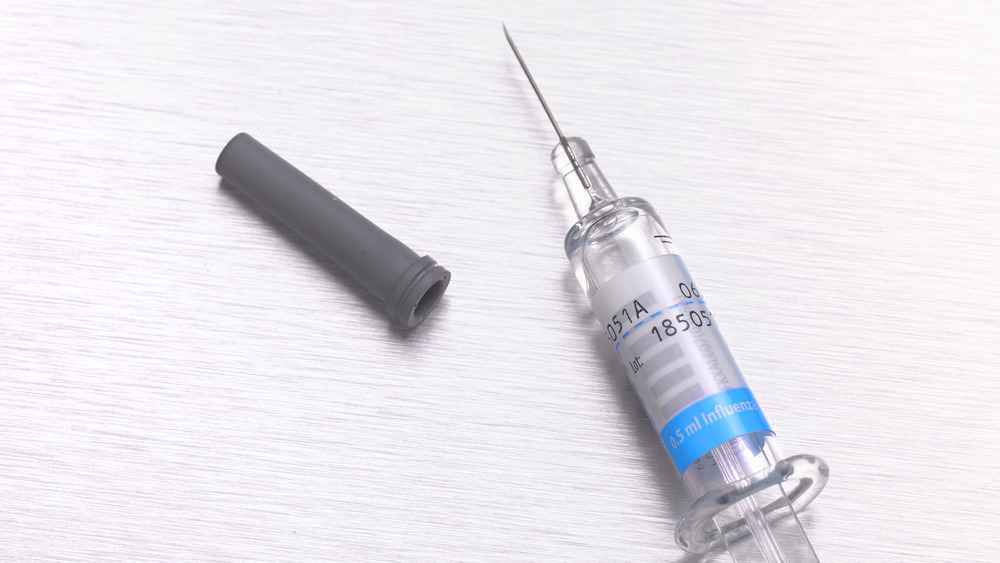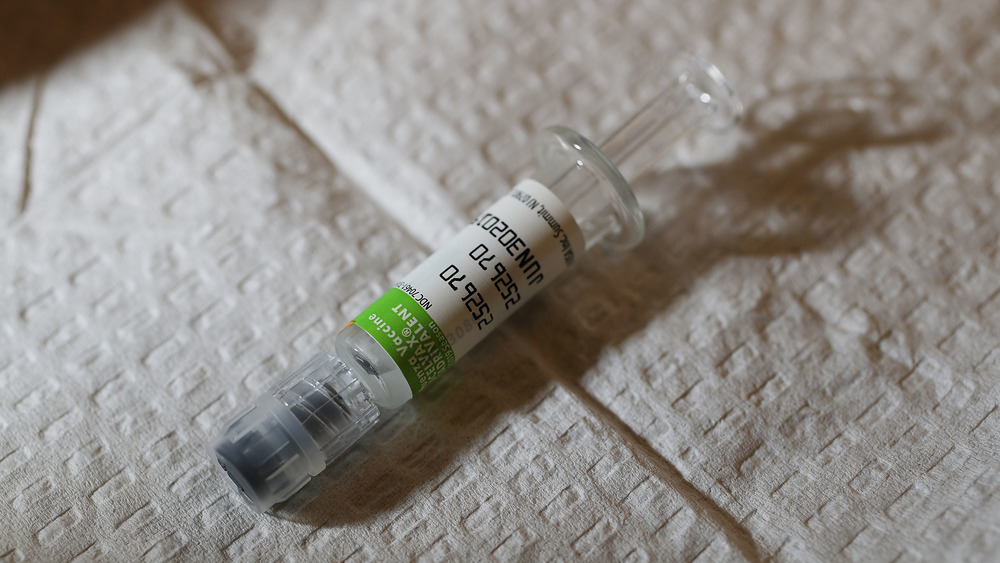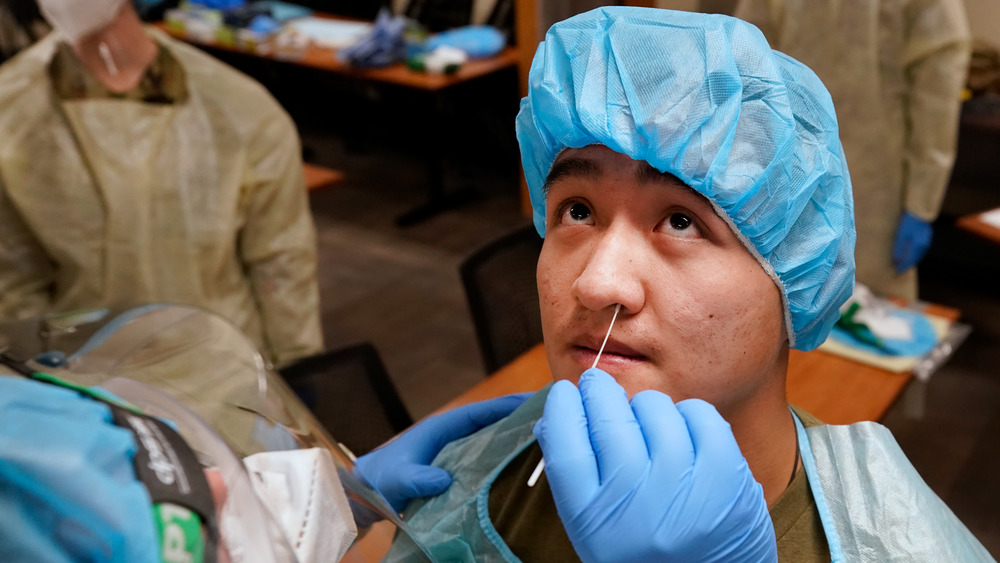How You Can Expect To Feel After Getting A COVID-19 Vaccine
We often look to early reviews or word-of-mouth to decide if something new is worth trying out. And by all accounts, acquiring immunity through the COVID-19 vaccines doesn't look like it will bring a pleasant experience with it. CNN reports that volunteers for vaccine trials came away feeling flu-like symptoms, which could affect their decision to come back to get their booster shots.
Volunteers for trials involving both Pfizer and Moderna, whose vaccines are waiting for emergency use clearance, say they experienced a range of symptoms including high fever, body aches, bad headaches, and daylong exhaustion. The symptoms were similar to those associated with mild COVID-19, but that they also disappeared after a day. And participants have since admitted that it was better than actually getting the coronavirus. One volunteer even said: "If this proves to work, people are going to have to toughen up," she said. "The first dose is no big deal. And then the second dose will definitely put you down for the day for sure ... You will need to take a day off after the second dose" (via CNBC).
Expect discomfort arising from the COVID-19 vaccines
Patricia Stinchfield, who represents the National Association of Pediatric Nurse Practitioners, says : "These are immune responses, so if you feel something after vaccination, you should expect to feel that. And when you do, it's normal that you have some arm soreness or some fatigue or some body aches or even some fever." She even warns that some people might feel bad enough to stay home and skip work or school the next day (via CNN).
In spite of the discomfort the vaccines are expected to trigger, Emory University School of Medicine's Sandra Fryhofer, who represented the American Medical Association in meetings with the CDC, says, "As a practicing physician, I have got to be sure my patients will come back for the second dose. We really have got to make patients aware that this is not going to be a walk in the park."
These reports may have a negative impact on the number of people who want to get the vaccine. CNN reports that only 34 percent of nurses surveyed would voluntarily get vaccinated — and that vaccine acceptance was highest among Asian-Americans, and lowest among African-Americans. Most of the concerns had to do with side effects, the vaccine's efficacy, and how quickly the vaccine had been approved.
Plans are already in place for a vaccine roll-out
Still, there are those that are ready. The state of Texas has already rolled out its vaccination plan, with priority going to hospital workers and nursing home staff, first responders, home health-care workers, and those who are most vulnerable to the disease. The state has confirmed more cases than any other region in the country and has the second-highest number of deaths. It, along with New Mexico, Tennessee, and Rhode Island, are on track to receive the vaccine first, under a pilot delivery program announced by Pfizer in mid-November (via CNBC).
Those on the ground are clear that no vaccines will be shipped until it gets approval from the FDA for emergency use. The University of Texas' chief clinical officer, Amy Young, has told students and staff that "We anticipate that the vaccine that we will be administering will be from Pfizer and that we could receive vaccine as early as the end of next week, but more likely after Thanksgiving." Health and Human Services Secretary Alex Azar estimates that the vaccine will be distributed soon after December 10.
"We're monitoring the vaccine distribution effort," Biden
If the rollout works, don't expect too many changes from the incoming Biden administration, who is monitoring the distribution efforts. President-elect Joe Biden has told NBC that: "The [current] administration has set up a roll out of how they think it should occur, what will be available, when, and how. We'll look at that, we may alter that, we may keep the exact same outline, but we haven't gotten that briefing yet."
Biden, who has held meetings with state governors is supportive of the plan to get those who are most vulnerable they help they need. "I've had Zoom [meetings] with governors around the country — five Republicans, five Democrats — we've talked extensively about the need to cooperate and to get the vaccine to places where you can actually get vaccinated, and their ideas on who they think should go first — and I think obviously we should be focused on the doctors, the nurses, the first responders."
He also said while everything is in transition, there was the hope that the vaccine could be distributed before his incoming administration takes office.



